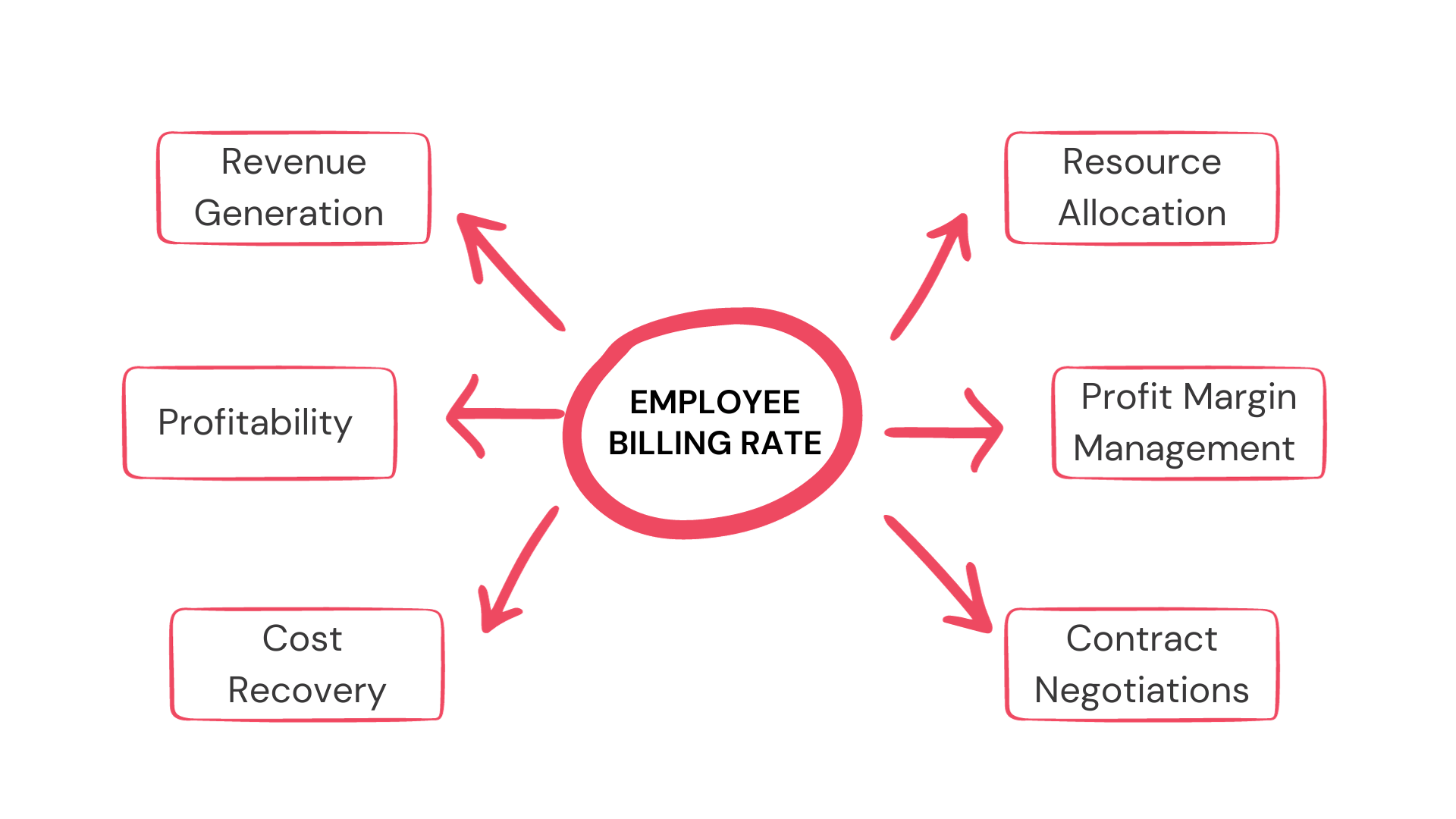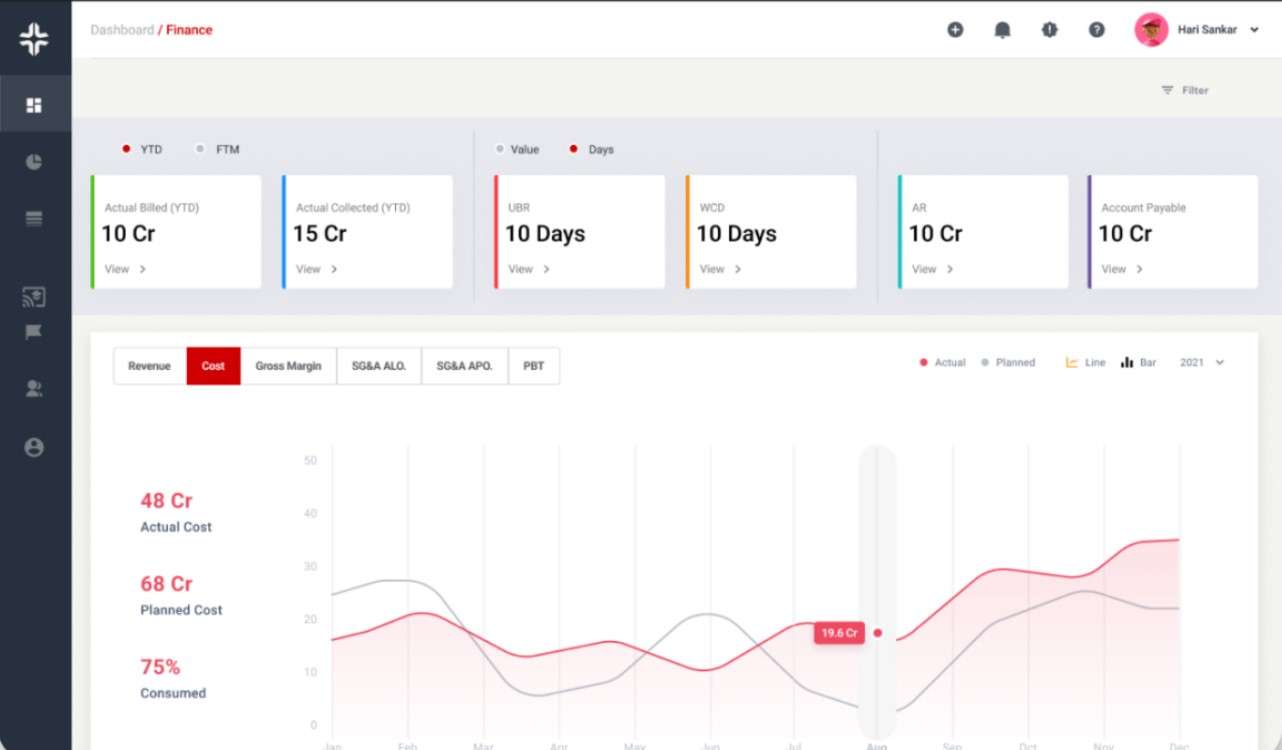Home » PSApedia
Employee Billing Rate
Optimize Your Workforce and Define Employee Billing Rate for Precision and Profitability.

What Is Employee Billing Rate?
Employee Billing Rate refers to the rate at which a company charges its clients for the work performed by a particular employee. This rate encompasses not only the employee’s salary but also additional overheads like benefits, administrative costs, and a profit margin for the company.
It’s vital for businesses, especially those in the professional services automation (PSA) sector, to set an accurate billing rate to ensure profitability.
Why is Employee Billing Rate Important?
Employee billing rate is crucial as it determines the revenue generated for services rendered by an employee. It aids in covering salaries, overhead costs, and profits. Setting the right billing rate ensures a business remains competitive, profitable, and sustains its growth, while also appropriately valuing the employee’s expertise and contribution.
Employee Billing Rate serves as a crucial metric in understanding the profitability of an employee or a project. Properly setting and understanding this rate can:
- Ensure a fair value for the work delivered to clients.
- Provide insights into project costs and profit margins.
- Aid in financial planning and analytics.
- Help in competitive pricing in the market.

Why is Employee Billing Rate Important?
Calculating the Employee Billing Rate
The formula for calculating the employee billing rate is:
Employee Billing Rate = (Employee’s Salary + Overheads + Desired Profit) / Billable Hours
Example:
Let’s say an employee has an annual salary of $50,000, overheads amounting to $10,000, and the company wishes to achieve a 20% profit ($12,000) from this employee’s work. If the employee has 1,500 billable hours in a year, the billing rate would be:
Employee Billing Rate = ($50,000 + $10,000 + $12,000) / (1,500) = $48/hour
Difference Between Employee Billing Rate and Cost Rate
While the employee billing rate is what a company charges its clients for an employee’s work, the cost rate is what an employee costs the company. The difference between these two rates often represents the company’s profit margin for that employee’s work. Understanding this difference is essential for optimizing project financials.
Employee billing rate is the rate at which an organization charges its clients for the hours worked by its employees. The cost rate, on the other hand, represents the actual cost to the company for employing that individual, including salary, benefits, and overhead.
How is Employee Billing Rate Used?
Employee billing rate is used as a tool for businesses to cover the direct costs of employees, including their salaries and benefits, as well as indirect costs like overhead, equipment, and administration. It helps in pricing services to clients, ensuring that the company remains profitable.
Employee Billing Rate plays a pivotal role in:
- Project budgeting and estimation.
- Assessing the profitability of projects.
- Resource management and allocation.
- Client invoicing and contract negotiations.
- Benchmarking against industry standards.
Employee Billing Rate vs Hourly Rate vs Salary
It’s essential to discern between these metrics for efficient financial management in professional services.
| Metric | Description | Example |
|---|---|---|
| Employee Billing Rate | Rate at which a company charges its clients. Includes salary, overheads, and profit. | $75/hour |
| Hourly Rate | Rate at which an employee is paid for every hour worked. Doesn’t include company overheads or profit. | $50/hour |
| Salary | Fixed regular payment, typically monthly, made by employers to employees. | $100,000 annually |
Ready to Optimize Your Employee Billing Rate?
Having a comprehensive grasp of your Employee Billing Rate is vital. But understanding is just the beginning. With the right tools like KEBS, you can not only track but also optimize this metric, ensuring your business remains profitable while delivering value to clients.

KEBS Finance Management
Dive deeper into the KEBS ecosystem and discover how it can transform your approach to project management, deal management, and more. Get a more hands-on experience by booking a demo or contact us for personalized insights.



